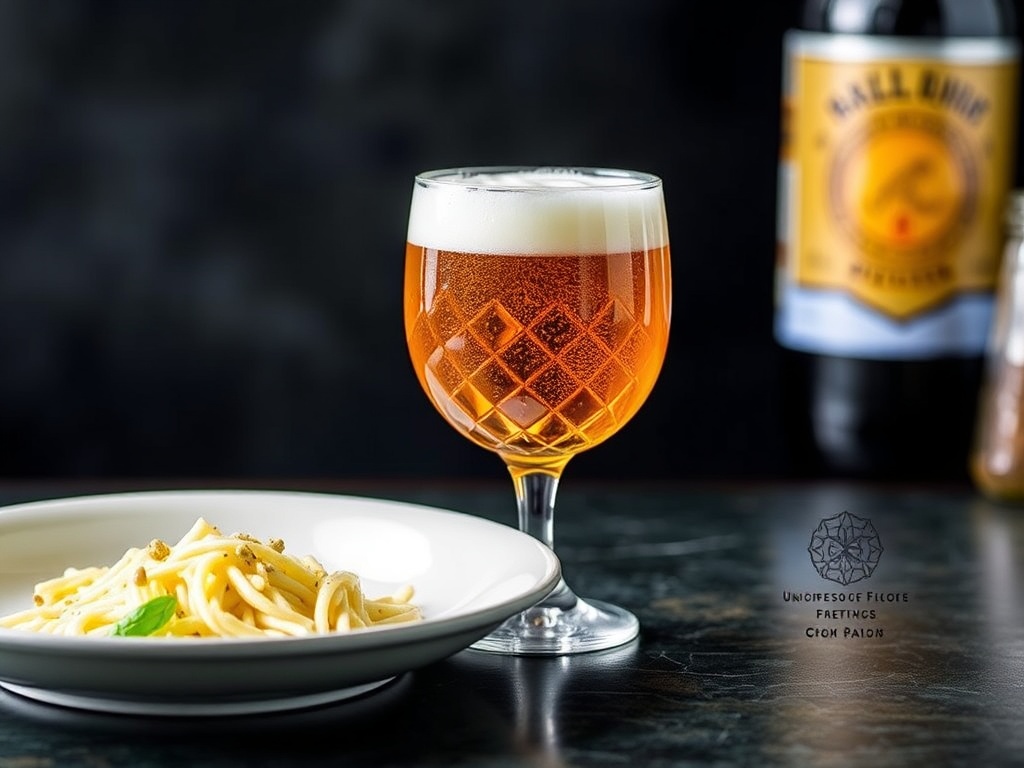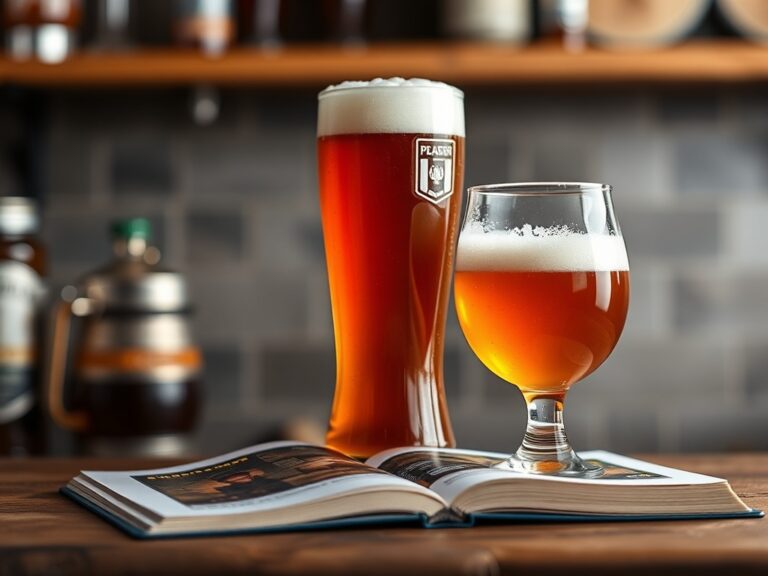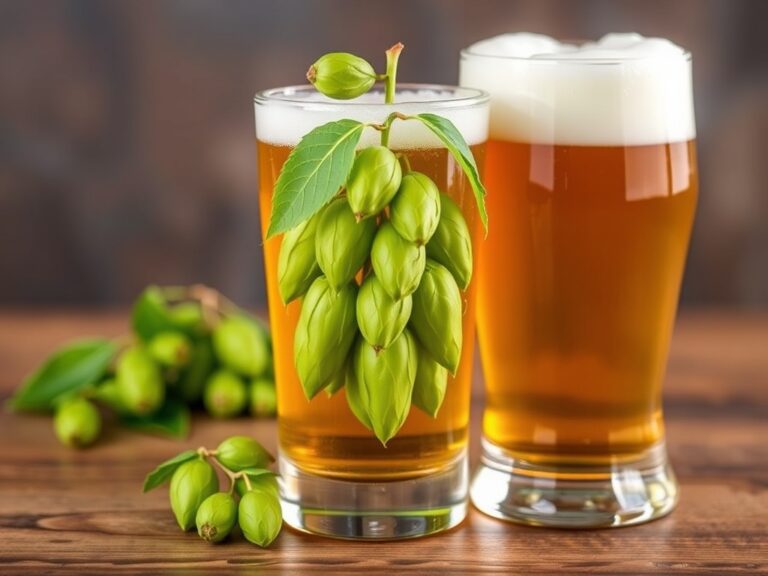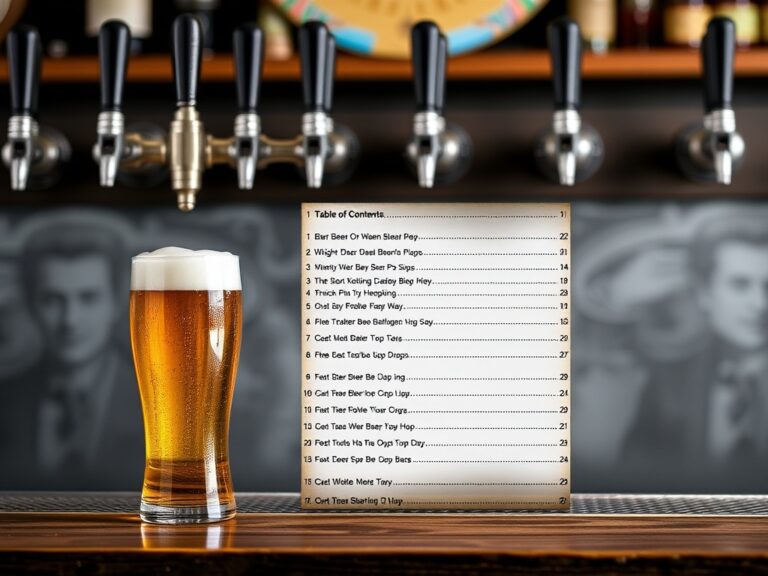Elevate Your Palate: How Becoming a Craft Connoisseur Transforms Your Appreciation for Unique Flavors

Elevate Your Palate: How Becoming a craft connoisseur Transforms Your Appreciation for Unique Flavors
Introduction to the Craft Connoisseur Mindset
In my experience with becoming a craft connoisseur, I’ve realized that developing a refined palate is more than just tasting; it’s a journey into understanding the story behind each flavor. When I first started exploring craft beverages and artisanal foods, I was simply curious. Over time, however, I discovered that embracing the craft connoisseur mindset opened my eyes to a whole new world of nuanced tastes and craftsmanship. I want to share what I’ve learned about elevating my appreciation for these unique flavors and how it can transform your experience too.
From what I’ve researched and practiced, the key to becoming a true craft connoisseur lies in curiosity, education, and a willingness to explore beyond the familiar. It’s about savoring each sip or bite with intention and curiosity. In my opinion, cultivating this mindset leads to a richer, more meaningful engagement with the flavors that surround us daily. I believe everyone can elevate their palate with a bit of guidance, and I hope my insights help you on this journey.
Developing Your Skills as a craft connoisseur
Honing Your Sensory Perception
In my experience, the first step to becoming a craft connoisseur is sharpening your senses. I’ve found that paying close attention to aroma, texture, and appearance significantly enhances the tasting experience. When I started paying more attention to the subtle differences in aroma profiles, I was amazed at how much more I appreciated each flavor. I recommend practicing blind tastings to focus solely on your senses without bias.
From my research, I’ve learned that sensory training can be both fun and educational. I’ve tried aroma kits and tasting exercises that help distinguish between different notes and intensities. As a craft connoisseur, developing a keen nose and palate is essential, and it’s a skill you can definitely improve over time. Trust me; the more you practice, the more you’ll uncover hidden layers in your favorite craft products.
Learning the Craft’s Story
Another important aspect I’ve discovered as a craft connoisseur is understanding the story behind what I’m tasting. From the ingredients to the brewing or fermentation process, each detail adds context and depth to the flavor profile. I recommend reading about the history and methods used by artisans and craft producers. It’s incredible how this knowledge deepens my appreciation and allows me to distinguish between different styles and techniques.
From what I’ve learned, engaging with producers through tours or interviews can be incredibly enlightening. I’ve had firsthand experiences where talking to a brewmaster or a chocolatier changed the way I perceive their products. As a craft connoisseur, my advice is to seek out these stories—it makes every tasting more meaningful and elevates your overall experience.
Deepening Your Appreciation for Unique Flavors
Exploring Diverse Craft Styles
In my journey to become a craft connoisseur, I’ve found that exploring different styles and regions is key. I’ve discovered that regional terroirs, climate, and ingredients influence flavor profoundly. For example, I’ve tried craft beers from Belgium that have a totally different profile than those from the Pacific Northwest. I recommend trying products from various origins to expand your palate and understand the diversity within craft traditions.
From my experience, the more I explored, the more I appreciated the subtle distinctions that define each style. It’s like learning a language—each region has its dialects and nuances. As a craft connoisseur, I believe that embracing this diversity makes tasting not just enjoyable but intellectually stimulating. I encourage others to seek out new styles and challenge their taste boundaries regularly.
Pairing Flavors for Maximum Impact
Another insight I’ve gained is the importance of pairing. When I first started experimenting with food and drink pairings, I realized how certain combinations amplify flavors. I’ve found that as a craft connoisseur, understanding complementary and contrasting flavors can transform a simple tasting into an extraordinary experience. I recommend trying different pairings intentionally—whether it’s craft cheese with a dark stout or artisanal chocolates with a sour beer.
From what I’ve learned, pairing is an art that develops with practice. I suggest keeping notes of what works and what doesn’t, which helps refine your palate over time. It’s about discovering harmony and contrast—an essential skill for any aspiring craft connoisseur aiming to elevate their appreciation for flavors.
Practical Tips to Elevate Your Palate
Consistent Tasting and Note-Taking
In my experience, consistency is vital. As a craft connoisseur, I keep a tasting journal where I record my impressions. This habit has helped me recognize patterns and develop a refined vocabulary for describing flavors. I recommend dedicating time regularly to tasting different products and taking detailed notes. Over time, this practice has enhanced my ability to discern subtle differences and elevate my appreciation.
From what I’ve found, developing a structured tasting routine is more effective than casual sampling. Whether it’s craft beers, spirits, or artisanal foods, consistent practice helps train your palate and deepens your understanding. I believe that anyone can become a more discerning craft connoisseur with a little discipline and curiosity.
Joining Connoisseur Communities
Another way I’ve elevated my palate is by engaging with communities of fellow craft connoisseurs. Sharing tasting experiences, exchanging notes, and participating in tastings or workshops has been invaluable. I recommend finding local clubs or online groups focused on craft foods and beverages. These interactions expose you to new perspectives and challenge your taste assumptions.
My experience shows that the collective knowledge and enthusiasm of a community can accelerate your learning curve. Plus, it’s more fun to share discoveries with like-minded enthusiasts. As a craft connoisseur, I believe that community engagement is an essential step in truly elevating your appreciation for craft flavors.
References and Resources
Throughout my research on craft connoisseur, I’ve found these resources incredibly valuable. I recommend checking them out for additional insights:
Authoritative Sources on craft connoisseur
-
CraftBeer.com
craftbeer.comA comprehensive resource for understanding craft beer styles, brewing techniques, and tasting guides—perfect for aspiring craft connoisseur learners.
-
Brewbound
brewbound.comIndustry news, trends, and insights that help deepen your understanding as a craft connoisseur.
-
Craft Guild
craftguild.orgA professional organization offering resources, certifications, and education for serious craft connoisseurs.
-
Craft Magazine
craftmagazine.comFeatures articles on artisanal trends, flavor profiles, and profiles of master craft connoisseurs.
-
Food & Wine
foodandwine.comGreat for pairing ideas and understanding flavor combinations that elevate your craft tasting experience.
-
Hop Culture
hopculture.comFocuses on craft beer culture, brewing innovations, and tasting techniques—ideal for the aspiring craft connoisseur.
-
Craft Beverage
craftbeverage.comProvides industry insights, product reviews, and tasting notes to help hone your skills as a craft connoisseur.
-
Artisan Food Network
artisanfood.comExplores artisanal food trends, techniques, and profiles that deepen the craft connoisseur’s understanding of flavor craftsmanship.
Frequently Asked Questions
Frequently Asked Questions
What does it mean to be a craft connoisseur?
In my experience, being a craft connoisseur means having a deep appreciation and understanding of artisanal products. It involves tasting, analyzing, and learning about the craftsmanship behind each item, whether it’s craft beer, spirits, or artisanal foods. I’ve found that this knowledge enriches the tasting experience and fosters a genuine connection to the craft.
How can I start my journey to become a craft connoisseur?
From my perspective, the best way to start is by tasting widely and taking notes. I recommend exploring different styles and regions, reading about the craft, and engaging with communities. Consistency and curiosity are key—I’ve found that over time, your palate will become more refined, and your appreciation deeper.
What are some essential skills for a craft connoisseur?
I believe that sensory perception, knowledge of craft techniques, and the ability to articulate tasting notes are essential skills. I’ve worked on developing my vocabulary and understanding of flavor profiles, which has significantly improved my tasting experience. I recommend practicing regularly and learning from seasoned connoisseurs to sharpen these skills.
Why is it valuable to be a <a href="#INTERNAL_LINK_craft connoisseur?
In my opinion, being a <a href="#INTERNAL_LINK_craft connoisseur enriches your sensory experiences and connects you more deeply to the craft community. It elevates your appreciation for artistry, tradition, and innovation behind each product. I’ve found that it also makes sharing and recommending these products more meaningful, enhancing my overall enjoyment.
Conclusion
In conclusion, my research on craft connoisseur has shown that cultivating a refined palate and understanding the stories behind artisanal products truly elevates the entire tasting experience. I believe that anyone can embark on this journey with curiosity, practice, and a desire to learn. I hope this guide helps you see how becoming a <a href="#INTERNAL_LINK_craft connoisseur not only transforms your appreciation for flavors but also deepens your connection to the craftsmanship behind every sip and bite. Based on my experience, embracing this role will make your culinary adventures far more meaningful and enjoyable.
Find out more information about “craft connoisseur”
Search for more resources and information:





